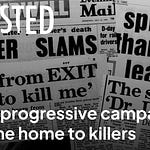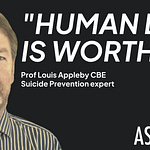In Westminster this week, MPs will reconvene to continue line-by-line scrutiny of the Assisted Dying Bill. As the committee returns, key questions remain: Could people with conditions such as diabetes and anorexia be considered terminally ill? Are doctors equipped to detect coercion and ensure vulnerable women are not pressured into ending their lives? How will the lethal drug regimens used in assisted death be regulated? And with palliative care services already underfunded and overstretched, could this bill leave some patients feeling they have no real choice but to end their lives?
In this episode, we speak with Professor Katherine Sleeman, Laing Galazka Chair in Palliative Care at King’s College London, and Professor Mark Taubert, Professor of Palliative Medicine and a Palliative Care Consultant at Velindre Cancer Centre.
They share their concerns about the consequences of the bill, the practical realities of implementing so-called safeguards, and the grave risks that may arise if eligibility criteria are left open to interpretation. Drawing from their own experience working in the NHS and international evidence, they leave us wondering if protections that sound robust on paper can withstand real-world pressures— and what this could mean for the future of end-of-life care in the UK.
Some helpful references Mark and Katherine discussed:













Share this post